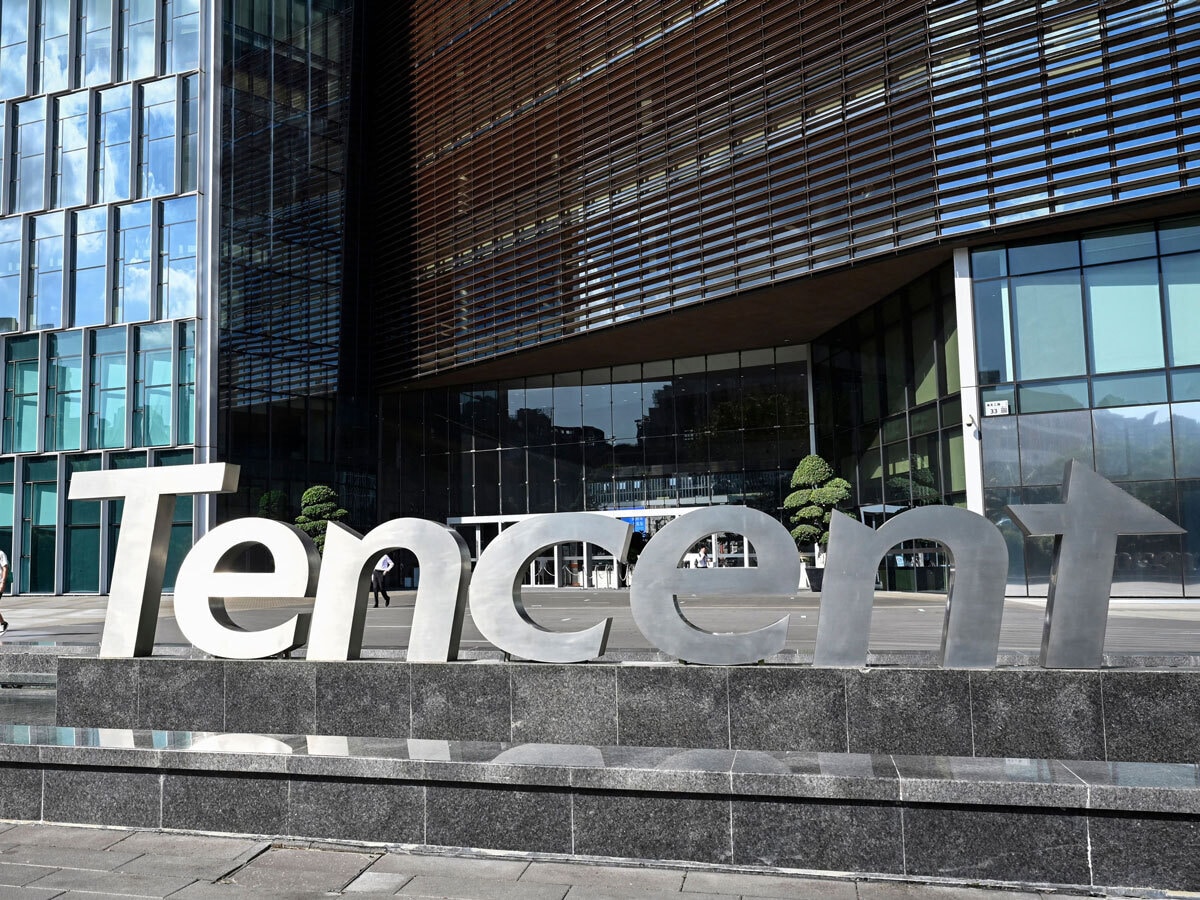The KraneShares CSI China Internet ETF clawed back some lost ground last week as Tencent gained approval for a new mobile game. But with China’s economy struggling, ongoing price wars and the threat of new gaming restrictions, challenges lie ahead.
- KWEB ETF climbed 5% last week, but fell 14% across last six months.
- Second-biggest holding Alibaba slides nearly 2% following underwhelming results.
- IMF predicts Chinese economy growth will slow to 3.5% by 2028.
The KraneShares CSI China Internet ETF [KWEB] rose 5.1% over the last week. The fund may be following the trajectory of top holding, Tencent Holdings [0700:HK], which on 2 February won regulatory approval for the Dungeon & Fighter Mobile game, a collaboration with South Korean video game publisher Nexon [3659:T].
Tencent’s share price climbed 2.6% across last week, although it has dived 14.7% in the last six months. In January, the proposal of new Chinese gaming restrictions wiped $32bn off the value of Tencent stock.
Meanwhile, the share price of KWEB’s second-biggest holding Alibaba [9988:HK] fell 1.8% last week, after the Chinese e-commerce giant dropped underwhelming earnings on 8 February, and closed down 6.1% for the day. Alibaba’s share price has plunged 27.1% in the last six months.
Despite last week’s upturn, over the past six months KWEB has tumbled 14.1% as the Chinese e-commerce market and wider economy struggle, and internet retail competition in China stiffens.
The fund offers exposure to Chinese internet companies that “provide similar services as Google, Facebook, Twitter, eBay [and] Amazon”, and taps into business from “China's growing middle class”. Firms held are listed on both US and Hong Kong exchanges.
Alibaba Drops Disappointing Earnings
Tencent Holdings is the largest holding in the KWEB fund as of 9 February, with a 10% weighting.
China’s biggest purveyor of social media and the owner of WeChat, it posted Q3 earnings in November 2023, announcing revenues of RMB154.6bn ($21.5bn), a rise of 10% year-over-year, alongside profits of RMB45.8bn, up 37%.
While net profit of RMB36.2bn fell 9% year-over-year, this still beat analyst expectations, according to Bloomberg.
In a statement, Tencent Chairman and CEO Ma Huateng said: “new services such as Video Accounts and Mini Games contributed high margin revenue streams”, driving “solid and high-quality revenue growth”. Tencent is next due to report earnings in March.
Alibaba is the second-biggest holding in KWEB, with a 9.7% weighting.
The Chinese e-commerce giant delivered disappointing results last week, posting revenues of RMB260.4bn, up 5% year-over-year, but behind the RMB262.1bn expected by analysts at LSEG. Alibaba said it is increasing its share buyback scheme by $25bn.
Last year, Alibaba underwent a series of significant changes, including a restructure, a new CEO and the shelving of the spin-off its cloud computing arm.
Sluggish Outlook for Chinese Economy
The KraneShares CSI China Internet ETF peaked in value in February 2021, when the e-commerce market thrived as people worldwide stayed home.
According to data from Statista and the World Bank, China’s internet sales market could still have ample room to grow. In 2022, the country’s internet population was at 1.1 billion, representing penetration of only 74%. In contrast, the US internet population numbers 311 million and accounts for 93% of the total population.
However, the Chinese economy has recently faced downgrades as the economy slows; it is forecast to continue this trend through 2028. The International Monetary Fund predicts national growth will slow to 3.5% over this period.
Hurdles for Tencent include draft legislation announced by Beijing last December, which would restrict the money and time citizens can spend gaming. Over 30% of Tencent’s revenue comes from gaming.
Meanwhile, Alibaba is facing pricing challenges from e-commerce rivals including PDD [PDD], KWEB’s third-largest holding, and ByteDance.
Tencent shares have been rated a ‘strong buy’ by 13 analysts at TipRanks.
Meanwhile, for the US-listed stock for Alibaba [BABA], 21 analysts are offering a consensus rating of ‘buy’.
Disclaimer Past performance is not a reliable indicator of future results.
CMC Markets is an execution-only service provider. The material (whether or not it states any opinions) is for general information purposes only, and does not take into account your personal circumstances or objectives. Nothing in this material is (or should be considered to be) financial, investment or other advice on which reliance should be placed. No opinion given in the material constitutes a recommendation by CMC Markets or the author that any particular investment, security, transaction or investment strategy is suitable for any specific person.
The material has not been prepared in accordance with legal requirements designed to promote the independence of investment research. Although we are not specifically prevented from dealing before providing this material, we do not seek to take advantage of the material prior to its dissemination.
CMC Markets does not endorse or offer opinion on the trading strategies used by the author. Their trading strategies do not guarantee any return and CMC Markets shall not be held responsible for any loss that you may incur, either directly or indirectly, arising from any investment based on any information contained herein.
*Tax treatment depends on individual circumstances and can change or may differ in a jurisdiction other than the UK.
Continue reading for FREE
- Includes free newsletter updates, unsubscribe anytime. Privacy policy





